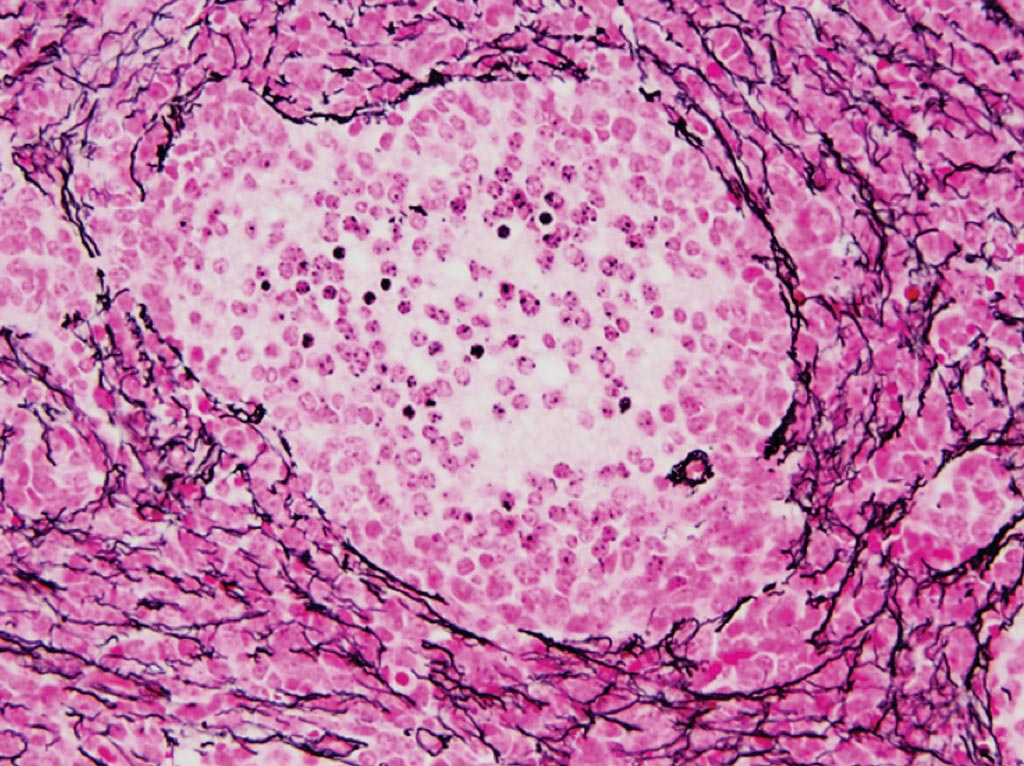Precision Medicine Advances Pediatric Brain Tumor Diagnosis
By LabMedica International staff writers
Posted on 02 Feb 2017
Targeted therapies for cancer have significantly improved the treatment of certain types of leukemia, digestive system tumors, and breast cancer, among other malignancies.Posted on 02 Feb 2017
Precision medicine, in which diagnosis and treatments are keyed to the genetic susceptibilities of individual cancers, has advanced to the point where it can now impact the care of a majority of children with brain tumors.

Image: A histopathology of a desmoplastic-nodular medulloblastoma, stained for reticulin. Reticulin fibers permeate the tumor but are absent in the center of the nodule (Photo courtesy of Dr. Dimitri Agamanolis, MD).
A large team of scientists associated with the Dana-Farber Cancer Institute analyzed the genomes of 203 pediatric brain tumor samples, representing all major subtypes of the disease. They analyzed 117 of the samples with OncoPanel testing, a technology that sequences the exomes, the sections of DNA that hold the blueprints for making specific cell proteins, for irregularities in 300 cancer-related genes. They also studied 146 samples tested with OncoCopy, which examines how many copies of genes are missing or overabundant within the tumor cells. Sixty samples underwent both forms of testing, which allowed the scientists to explore whether combining the two tests was more powerful than each alone.
Of the samples tested by OncoPanel, 44 cancer mutations and 20 rearrangements (56%) harbored genetic abnormalities that were clinically relevant which could impact a patient's diagnosis or be targeted by drugs already in clinical use or under study in clinical trials. The team also reported that alterations were found in the BRAF gene, one of the most commonly mutated genes in pediatric brain tumors and one for which several targeted drugs are being tested. The two-pronged testing approach revealed clinically relevant abnormalities in 89% of medulloblastomas, which account for nearly a fifth of all brain tumors in children. Combining the two tests was found to be particularly useful for these patients.
Susan Chi, MD, an Assistant Professor in Pediatrics, co-senior author of the study, said, “The importance of genomic profiling in the diagnosis and treatment of pediatric brain cancers is reflected in the World Health Organization's recent decision to classify such tumors by the genetic alterations within them, rather than by broad tumor type. Targeted therapies are likely to be most effective when they are matched to specific abnormalities within tumor cells. Our findings show that precision medicine for pediatric brain tumors can now be a reality.” The study was published on January 19, 2017, in the journal Neuro-Oncology.













